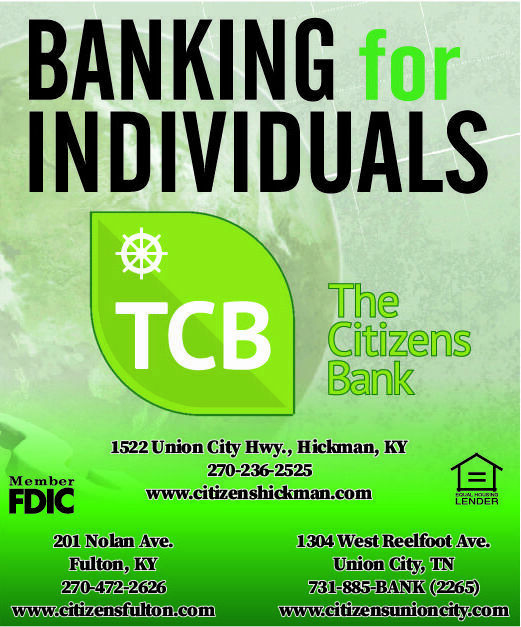The CARES Act: Major Coronavirus Relief for American Workers, Families, and Small Businesses
Senate Republicans Introduced The CARES Act, Which Would Provide Significant Assistance To American Families And Small Businesses, Bolster The Health Care Response, And Stabilize The Economy During The Coronavirus Emergency
SENATE MAJORITY LEADER MITCH McCONNELL (R-KY): “I am officially introducing the Coronavirus Aid, Relief, and Economic Security Act. This legislation takes bold action on four major priorities that are extremely urgent and extremely necessary:
Direct financial help for the American people; Rapid relief for small businesses and their employees; Significant steps to stabilize our economy and protect jobs;
And, of course, more support for the brave healthcare professionals and the patients who are fighting the coronavirus on the front lines.” (Sen. McConnell, Remarks, 3/19/2020)
SEN. McCONNELL: “I look forward to working with our Democratic colleagues and the Administration to complete this important work and deliver for the country…. These bipartisan discussions must begin immediately and continue with urgency, at the member level, until we have results…. [W]e need to help protect American workers, families, and small businesses from this unique economic crisis that threatens to worsen with every day. We need to have the American people’s backs. This legislation is a significant next step. And the Senate is not going anywhere until we take action.” (Sen. McConnell, Remarks, 3/19/2020)
The CARES Act Provides Direct Assistance To America’s Families
The CARES Act:
· Provides recovery checks to most taxpayers, providing cash immediately to individuals and families. Individuals are eligible for checks up to $1,200 and married couples filing jointly are eligible for checks up to $2,400, with an extra $500 for each child. So that relief is focused on those who need it most, eligibility for recovery checks is reduced starting at $75,000 in 2018 income for individuals and $150,000 in 2018 income for joint filers. Individuals with 2018 income exceeding $99,000 and joint filers with 2018 income exceeding $198,000 are ineligible.
· Extends the traditional April 15th tax filing deadline to July 15th and allows individuals required to make estimated tax payments to postpone them until October 15th.
· Waives penalties for early withdrawal from qualified retirement accounts for coronavirus-related purposes of up to $100,000.
· Allows the Secretary of Education to defer student loan payments and allows students who were forced to drop out of school due to coronavirus to keep their Pell grants.
· Grants colleges and universities flexibility to continue work-study payments to students who cannot work due to coronavirus closures.
SEN. CHUCK GRASSLEY (R-IA), Senate Finance Committee Chairman: “Preventing the spread of the coronavirus will take a financial toll on individuals, families and businesses. These recommendations would blunt the impact for most Americans and limit the damage to the U.S. economy. We can contain this deadly virus without destroying livelihoods or the nation’s economy. These recommendations take bold steps to curb the economic fallout as we work as a country to contain this pandemic. These recommendations won’t be the end of the congressional response to the coronavirus.” (U.S. Senate Finance Committee, Press Release, 3/19/2020)
SEN. JOHN THUNE (R-SD), Senate Majority Whip: “The American people are focused on doing whatever they can to protect themselves and their families throughout this outbreak. They also want to see the federal government demonstrate that it can take swift and bold action to help blunt the effects the coronavirus is having on workers and our economy. Every day in this fight is critical, which is why I support this effort that would provide additional relief to American families and small businesses upended by this collective and unseen enemy. While this won’t solve all of the problems our nation is facing overnight, cash payments to middle- and low-income families will provide direct support as quickly as possible. The time to act is now.” (U.S. Senate Finance Committee, Press Release, 3/19/2020)
The CARES Act Bolsters The Health Care Response To Coronavirus
The CARES Act:
· Addresses supply shortages for drugs and critical equipment, including ventilators and medical masks.
· Expands testing and ensures coronavirus tests are free for patients.
· Speeds the development of new vaccines and treatments, such as reducing barriers to work with the private sector.
· Permits patients to use health savings accounts to cover telehealth services and expands telehealth access for Medicare beneficiaries.
· Increases Medicare payments to hospitals treating a patient admitted with coronavirus.
SEN. LAMAR ALEXANDER (R-TN), Senate Health, Education, Labor, & Pensions Committee Chairman: “This urgent situation requires a united approach to help Americans hurt by the outbreak. That includes fixing problems with the paid leave mandate, improving our health care capability and providing relief to schools and students who have had their education disrupted. This legislation includes proposals to expand testing and ensure laboratory-developed tests are free, hire more health care workers, manufacture more personal protective equipment, and speed the development of new vaccines and treatments. Additionally, the legislation allows students to defer payment on their student loans and to keep their Pell grants and gives the Education Secretary flexibility to waive federal academic testing and accountability rules.” (U.S. Senate Health, Education, Labor, & Pensions Committee, Press Release, 3/19/2020)
SEN. GRASSLEY: “As America combats coronavirus, we’re rapidly working to provide resources and relief for Americans and health care providers that care for them. We’ll boost the use of telehealth services so Americans can receive care in the safety of their own home, reducing the exposure risk for everyone including providers and the most vulnerable. Medicare will boost payments to health care providers and hospitals to ensure they have the resources to care for patients. Anyone with health savings accounts will be able to more easily get the care they need. These proposals in conjunction with those of other task forces will deliver the most significant package of relief yet to Americans as we continue to combat this public health crisis.”
The CARES Act Provides Rapid Relief For Small Businesses And Their Employees
The CARES Act:
· Provides cash-flow assistance through federally guaranteed loans to employers who maintain their payroll during this emergency. If employers maintain their payroll, the loans would be forgiven, which would help workers to remain employed and affected small businesses and our economy to quickly snap-back after the crisis.
· Expands the allowable uses for certain small business loans to permit payroll support, including paid sick leave, supply chain disruptions, employee salaries, mortgage payments, and other debt obligations to provide immediate access to capital for small businesses who have been impacted by the coronavirus emergency.
· Fixes burdensome regulations in the paid leave mandate for small businesses.
· Makes unemployment insurance applications more easily accessible.
SEN. MARCO RUBIO (R-FL), Senate Small Business & Entrepreneurship Committee Chairman: “The economic uncertainty and potential global impact we are facing due to the coronavirus pandemic are unprecedented. America’s more than 30 million small businesses — and the 59.9 million individuals they employ — today face the prospect of going bankrupt. They face this threat due to no fault of their own, but because of a global pandemic that takes human lives and grinds productivity to a halt. [This legislation] is the best path forward to help businesses and their employees endure this catastrophic disruption. Congress must set aside our normal procedural and partisan games to act without delay.” (U.S. Senate Small Business & Entrepreneurship Committee, Press Release, 3/19/2020)
SEN. SUSAN COLLINS (R-ME): “Every day, I am hearing from small businesses in my state that are on the verge of going under as a consequence of the coronavirus. The plan that Senator Rubio and I have authored would help make sure that businesses that were thriving before the pandemic as well as their employees are able to make it through this crisis. In the last three days in the State of Maine, there were more claims for unemployment compensation than all of March last year. That shows that businesses are already feeling the cash-flow problems, seeing declining revenues, losing customers, and being forced to lay off their employees. That is why we feel so strongly that we must act and we must act immediately. I believe that we can come together to address this urgent problem.” (U.S. Senate Small Business & Entrepreneurship Committee, Press Release, 3/19/2020)
SEN. ALEXANDER: “We are going to have to pay what it costs to contain this disease. And one effective way to do this is to help small businesses faced with closing to stay open and keep Americans on their payroll.” (U.S. Senate Small Business & Entrepreneurship Committee, Press Release, 3/19/2020)
The CARES Act Helps Stabilize Our Economy
The CARES Act:
· Does not provide grants or bailouts, only loans that must be repaid to the government.
· Allows the Treasury Secretary to provides loans and loan guarantees to passenger air carriers, cargo air carriers, and other major industries severely impacted by government health restrictions to combat the coronavirus.
· Prohibits companies receiving assistance from increasing executive pay or providing “golden parachutes” for two years.
· Directs the Treasury Secretary to ensure the U.S. government is compensated for the loans to these industries.
· Provides tax relief to businesses affected by the coronavirus emergency. Allows deferred payments on estimated taxes and some payroll taxes, increased deductibility for interest expenses, immediate expensing of qualified property improvements, especially for the hospitality industry, and corrects errors in the Tax Cuts and Jobs Act that inadvertently affected certain businesses.
SEN. RICHARD SHELBY (R-AL), Senate Appropriations Committee Chairman: “American businesses didn’t cause this crisis, and aggressive action is warranted to ensure they have the liquidity necessary to weather its direct impacts. But let’s be crystal clear about what we are and are not doing here. We are not bailing out the airlines or other industries – period. Instead, we are allowing the Treasury Secretary to make or guarantee collateralized loans to industries whose operations the coronavirus outbreak has jeopardized. In my judgment, this approach strikes an appropriate balance between providing assistance and protecting taxpayers.” (U.S. Senate Appropriations Committee, Press Release, 3/19/2020)
SEN. ROGER WICKER (R-MS), Senate Commerce, Science, & Transportation Committee Chairman: “The global coronavirus pandemic requires strong and decisive action from the federal government. During this time of unprecedented economic uncertainty, it is critical that air carriers and other impacted industries have the resources they need to continue operations. This recovery package would support the hard-hit workers and businesses who bear no responsibility for this crisis.” (U.S. Senate Appropriations Committee, Press Release, 3/19/2020)
SEN. THUNE: “These are extraordinary times that require swift and bold action from the federal government. The legislative proposals we’re announcing today, while not a silver bullet, rise to the occasion. They provide critical tools to industries throughout the country that help support the entire U.S. economy and have been pummeled by the ongoing coronavirus outbreak, at no fault of their own. I look forward to supporting these and other measures that will continue to support American families and small businesses, strengthen our economy, and give our nation’s health care community the tools it needs in this fight.” (U.S. Senate Appropriations Committee, Press Release, 3/19/2020)
Please support The Current by subscribing today!
